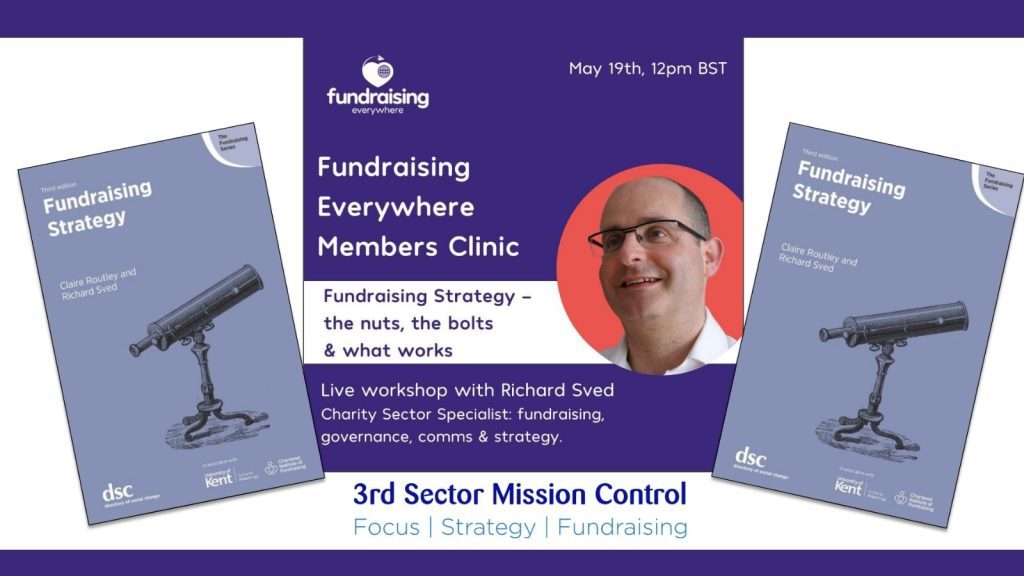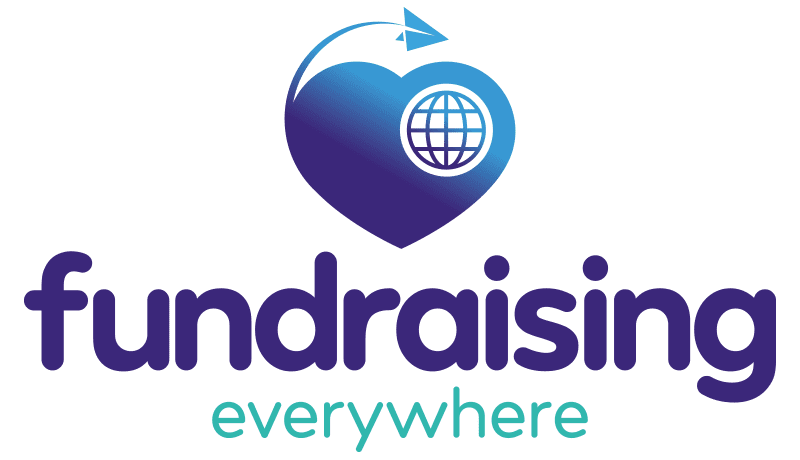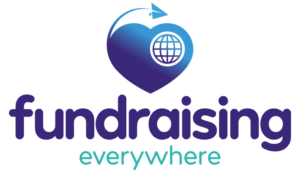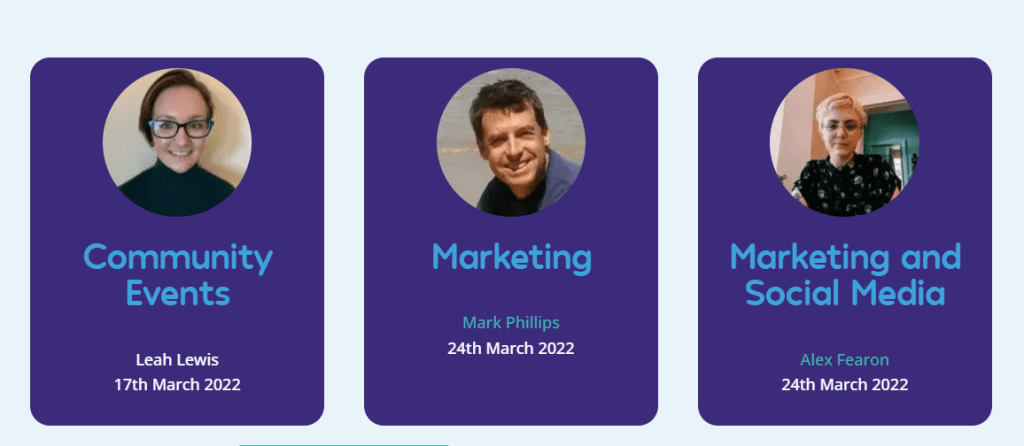
Written by Mandi Hine, Community Manager at Fundraising Everywhere.
For May’s exclusive Members Clinic we were joined by the always amazing Richard Sved. He gave us a whistle stop tour of the book he has co-authored with Dr Claire Routley - Fundraising Strategy.
Your strategy in 10 questions
The book (and Richard’s session) is very helpfully broken down into 10 questions (chapters) for working through your Fundraising Strategy. There is no set order when drafting a Fundraising Strategy, although the book is arranged in what Richard and Claire feel is the order that's most logical.
Most importantly, your fundraising shouldn’t ever stop just because you are taking time to think strategically about it!
5 important things to consider when writing your strategy
1. Set your objectives
- Where are you now?
- Where do you want to get to?
- How are you going to get there?
2. Audience
- Identify the most appropriate audiences - come up with a “persona” (or personas) for your most active or desired audience.
- How and when do they give?
- Why have they chosen you?
3. Style and content
- Consider the most appropriate messages to communicate to those audiences by looking at
- Tone
- Brand
- Case for support
4. Tactics
- What tactics are you using currently?
- Which streams have worked for you before?
- Will these continue to work in the future?
- Don’t forget to look at your donor experience
5. Analysis
- How do you monitor and control your fundraising performance and risk?
- How will you know if something has gone well or not worked out?
- Have you got a contingency plan?
But why do I need a Strategy?
In short, taking the time to plan ensures that, rather than diving straight into your fundraising with a few ideas around current trends or hunches about what might work, you will have carefully thought through the actions you’re going to take.
How can I avoid strategic wear-out?
- Encourage
- Diversity in culture, skills and perspectives
- Innovation - disincentivise behaviours that suppress it
- Generate a flow of information on the external environment and share it with key people internally
- Benchmark against the wider industry;
- Invest in market research to spot developing trends
- Monitor and control your strategies robustly
- Know that strategy development is an evolving process!
Importantly, remember, in the words of Wayne Murray -
“Your strategy isn't a document. It’s a set of mutually agreed decisions, created by all and owned by all. The document is just the receipt.”
Wayne Murray, Human Focused Strategy at Fundraising Strategy Virtual Summit 2021
Next steps
If you want to learn more about this topic, check out these 7 top strategy webinars available On Demand:
- The key questions to consider when developing your fundraising strategy
- The value of models and theories
- The British Red Cross approach to developing a people-centred fundraising strategy
- Human Focused Strategy
- Strategy is a feeling
- Making your strategy usable every day
- The data you need to make decisions
You can also get in touch with Richard on Twitter or LinkedIn.
Want to join next month's Members Clinic, plus receive loads of great member benefits like automatic access to all our upcoming events and everything On Demand?
Find out more about membership.
You can join as an individual or save as an organisation.

Written by Leesa Harwood, owner of By The Waves Charity Consulting and charity adviser, leadership coach and mentor.
Back in January, I wrote an article about my experience of burnout and how I could see the same signs in those around me.
The energy spike that usually accompanies the beginning of a new year failed to materialise amongst many of my third sector colleagues and I worried about their wellbeing. There was a huge reaction to the article leading to an online session to share experiences and advice.
Since I wrote my article in January, I continue to see symptoms of burnout and stress amongst sector leaders and their teams.
The more insecure we feel, the more we feed the other symptoms of stress, getting caught in a downward spiral
Five Signs of Stress
1. Loss of perspective
The small things get bigger as you lose the ability to step back and put problems into perspective. Soon, your head is filled with small but noisy problems punching above their weight.
2. Irritability
You find yourself snapping at those around you. A short temper and sharp tongue mean that friends, family and colleagues feel the impact of your lack of patience, perspective and rising stress levels.
3. Control
The more out of control you feel, the more controlling you become. As a leader you begin to interfere and disempower those around you, picking at the detail and wrenching projects away from others in a desperate attempt to regain control.
4. Ill health
Physical and mental health diminishes under acute stress. You don’t sleep, and feel tired all the time. You suffer from anxiety and depression. But as a leader you have been taught that resilience is non-negotiable. So, you keep going, deny your vulnerability and wait until you break before you finally stop.
5. Insecurity
As your performance as a leader starts to suffer, so does your confidence. This inevitably leads to self-doubt, a lack of confidence and an overwhelming sense of insecurity. The more insecure we feel, the more we feed the other symptoms of stress, getting caught in a downward spiral.
Leadership burnout is not inevitable. There are things we can all do to protect ourselves and each other from stress.
Beat burnout
At Fundraising Everywhere's Leadership Festival 2022 in the Culture Tent, Madison Gonzales (CEO of Morning Light Inc) brought burnout back into the spotlight. I for one am very grateful.
Leadership burnout is not inevitable. There are things we can all do to protect ourselves and each other from stress. If you or someone you know is experiencing from one or more of these signs of stress, catch up on Madison Gonzales' session as she guides us through ways to prevent burnout.
Madison shares how to make our workplaces happy and healthy places to be, with practical tips and reminders we can all take back into our work environments so we can foster a positive environment for all.
Building a culture where leaders and their teams feel confident, healthy and supported has never been more important. Catch up on Madison's and the other great Leadership Festival sessions On Demand.
A huge thanks to Leesa Harwood, who was Growth Tent Partner at the Charity Leadership Festival 2022. We collaborate with people who care about the future of our sector on our events. Each Tent Partner brings their insights and audience, meaning we can empower and upskill more people. Tent Partners may earn commission from tickets purchased through their links.

Guest bloggers, Anne Race & Henry Rowling of Flying Cars Innovation, share their gems of knowledge to help you innovate, and most importantly, succeed.
So - your new plan for the year says your fundraising ‘needs to be more innovative’. The pressure is on to develop new campaigns with big income potential. You need to raise more money to support more people and build a better world.
But how do you get started? Developing a culture that is supportive of innovation takes a lot of work. Many organisations are set up to maximise return on investment from existing campaigns. Not to create and test innovative new fundraisers.
Here are our top tips on how you can start to build a more innovative culture.
1. Audience insight
You need to make sure your audience is heard within your organisation. Too often, we develop products that do not answer the unmet needs of your audience. When developing a new product or campaign, you should start by identifying a target audience and gathering insight. Find out how to start gathering insight that matters at the free Innovation Masterclass we are running on May 12th.
Start by identifying a target audience and gathering insight
2. Innovation process
To become more innovative in the future, you need a process to take you through the key stages:
- Set the right brief
- Speak to the target audience to gain insights
- Develop ideas rooted in audience insight
- Prototype, test and pivot your shortlisted ideas
This process cannot be based on how you develop business-as-usual campaigns. You should refine your innovation process as you work with it.
3. Make space for innovation
Often organisations ask that innovation happens in addition to an already packed portfolio of fundraising campaigns and products, as well as other projects that need to be delivered. This adds stress and puts pressure on already stretched resources. Make space for innovation by stopping some campaigns that aren’t adding enough value. We all have campaigns that deliver marginal gains. Assess your portfolio and stop something to make room for the new.
4. Failure
Build a culture that is supportive of failure. By definition, innovation has a degree of risk attached. But it’s purposeful, managed risk, and ideas are planned for failure. If everything new we tried worked the first time, fundraising would be super easy. But learning from our failures and embedding that learning into your organisational knowledge is vital for innovation. You should encourage your senior leaders to talk about their failures if you want to become more innovative. That will permit everyone to be open and honest about what is and isn’t working. Check out the Charity Leadership Festival May 24th which has a session on this very topic.
Build a culture that is supportive of failure.
5. Sign-off
You should review your sign-off and slim it down as much as possible. In innovation, speed matters. Because not all ideas work, but because you need to burn through the ideas that don’t work for the audience as quickly and cheaply as possible to find the gems. Slow sign-off takes you further away from a win. Ideas designed by committee usually become less attractive to the supporter. Try to devise an agile sign-off process for innovative new campaigns.
6. Diverse thought
As you develop a new campaign, you must ensure you have diverse voices in the room and process. Qualitative insight should be created from a diverse panel within your priority audience. Your ideation sessions should also be as diverse as possible, again within the boundaries of your priority audience. Try to involve people from around your whole organisation to get varied ideas on how to tackle the problem you are solving. Diverse teams develop broader ideas and have more life experience to draw on.
You must ensure you have diverse voices in the room.
7. Work on the right brief upfront.
When we work with clients, we ensure we are working on the right brief. This means we set a big exciting goal upfront - to set ambition and get the organisation excited. We then identify a precise audience. The insight we are looking for goes beyond your supporter segmentation - Segment 3; ‘Colin the Contented commuter’ or ‘0-24 £10-50 cash giver’. What do they think and feel, what do they want and need? Why are they the right audience? Doing this work upfront ensures you know the goal for the audience and what success looks like. Sometimes briefs can be confused or unclear and people can find themselves working on the wrong problem.
If you address the 7 areas above you will be well on your way to greater fundraising innovation. For more tips have a read of 5 ways to build a successful innovation team and attend the Flying Cars Innovation Masterclass on May 12th.

Written by Mandi Hine
Why Members March?
What is Members March, and why should you get involved?
After all, you’re already super slammed, pulled in multiple directions and wondering why (or how) you should try and make time for one more thing.
I hope my 5 top reasons to embrace Members March will convince you that getting involved will actually make your life a little easier.
But, the first thing I need to tell you is;
It's all about you, (it's all about you) It's all about you baby, (it's all about) It's all about you, (it's all about you) It's all about you...
Sorry, I couldn’t help myself (and I do love a bit of McFly). But really, this is a month dedicated to our brilliant Members to support your 2022 goals.
This month we're hosting special events exclusively for our members including goal-setting, catching up on content, and speaking with our expert guests in one-on-one consultancy calls.
Let's dive in...
1. You'll gain clarity on your goals, and how to get there
Whether they’re big life-changing goals or smaller feats, we all have goals we want to achieve. However, we don’t always make time to really consider how we’ll get there, or why we need to.
Join us each Monday where we'll support you to set your goals and intentions for the week, month, and even the year ahead. Our expert team will share advice and insights from their combined 50+ years of fundraising experience, plus signpost to existing and upcoming Fundraising Everywhere events that are available to help you achieve your goals.
2. We'll help you hold yourself accountable
Want to prioritise your professional development but struggle to find the time? Have a lot of on demand sessions to catch up on but don’t know where to start? I totally get it.
Join me, at our weekly watch parties of the top-rated Fundraising Everywhere sessions. Each week is themed so you can choose the day(s) that fit with your goals. You can watch your session with the group or choose from our hand-picked selection. We'll discuss learnings together with one another.
Upcoming themes
14-18 March: Community and events
21- 25 March: Marketing and social media
28-31 March: Digital
3. You'll get expert coaching with our sector's best
Got a burning fundraising question you’ve always wanted to ask, or a big challenge to overcome? Book a 30-minute expert coaching session.
Each week we will be bringing you one of our handpicked experts to offer one to one coaching sessions on a range of subjects – from strategy to wellbeing, digital and community.
Upcoming coaching sessions
5. It’s included in your membership, so there's nothing extra to pay!
All of the above is included in your current membership. So, what are you waiting for? You can take advantage of as much or as little of the content as you wish.
Reserve your place at all our Members March events via the Members Room on your account.
Not a member yet? Don’t worry, you can join today and get instant access to all of the above plus all our other amazing member benefits. Use promo code MEMBERMARCH to get one month free membership and get stuck in right away.
Read more about Members March.
In partnership with

Written by Jo McGuinness MInstF(Dip), Head of Philanthropy & Partnerships at Children 1st
Dear recruiting managers,
I write this to you as something needs to change with the traditional way of recruiting.
This sector is great, but whilst we champion wellbeing, diversity and fairness externally in our charitable work, we are failing those who seek to support these efforts as potential employees.
Back in April 2021 the role I’d held for almost 4 years was highlighted for redundancy. I launched into job hunting immediately – as the sole earner in my family, I had to have an income.
A countdown clock started ticking to find a suitable role; a role I could stay in for a couple of years, remote working and a minimum salary so I could provide for my family.
Between April - September, I applied for 31 jobs, averaging 5 per month.
In total, including looking at job boards, researching roles and organisations, time spent writing covering letters, copying and pasting info from my CV into applications forms, preparing interview answers, fulfilling task briefs and the interviews themselves, I spent in excess of 70 hours job hunting.
70 hours roughly equates to 11 hours of work each month over and above my day job.

Job hunting currently is taking place against a background of a UK in crisis. We’ve got so used to the constant hum of tension, fear and anger that it’s easy to think we can all push on as usual and expect what we expected in 2019.
We can’t. People are struggling.
Job seekers feel fear even more acutely than before Covid-19, everything is more precarious and different things, such as an employer’s home working or maternity policies, are more important than before.
Appreciate the power dynamic. Do what you can to rebalance it.
The minute a job seeker looks at your advert they are on the back foot. Everything is done to your standard; your schedule and they are at your mercy. Anything you can put in place to make the process fairer, more transparent and kinder – the more applicants you will get.
Of the 31 roles I applied for, only 17 offered a conversation for interested candidates. As a job seeker, I cannot tell you just how useful those conversations are for candidates. They shed light on what’s important to you and your organisation and you get a feel for the humans behind the ad.
Of the 17 conversations offered (I took them all up), only 4 were with the actual recruiting manager – all others were with recruiters. Still of value but less insightful.
Please don't forget your manners.
Of the 31 applications made, 5 didn’t notify me at all of whether I was successful or not (I assume not!). Given the average time I spent on an application was over 2 hours, letting applicants know if they’ve been successful or not – a two-minute email, seems a polite thing to do.
Candidates in this sector are often partly drawn to roles due to an affinity or appreciation of your cause, so ask yourself – would you simply not reply to a potential donor if they contacted you?
Not having time isn’t a valid excuse. Make time.
While we are on making time and doing the work, please provide useful, constructive feedback.
It’s disheartening to invest time only to receive no useful feedback on why your application wasn’t progressed. It also asks questions about the transparency of the process.
Some of the no-so-helpful feedback I received when unsuccessful included;
“It was a really competitive process and I don’t have exact feedback on what was lacking in your application I’m afraid.”
“Having had such a good response to the advert, I have selected another candidate for the role with more relevant experience.”
Ugh.
Equally as frustrating is vague feedback given post-interview where you leave the candidate unsure as to what exactly you wanted to see. An example of this was when I was told by the recruiting manager that they “hadn’t really seen my personality” in the interview.
What does that mean?
What am I to do with that feedback?
Please, check your feedback is specific and something that the candidate can improve upon for similar roles in future. You may not see this as your responsibility, but it is. The candidate has given their time, if you have offered feedback you have the responsibility to ensure it is constructive.

Don't think we don't see the red flags.
Employee expectations have changed since 2019. We know that work can be done on the whole, equally as effectively at home.
We can build incredible relationships in the virtual space.
We know it’s better for our health and well-being to spend time doing things we want to do rather than sitting in traffic or on a train.
Roles requiring hybrid working without clear rationale are popping up more on job boards, and it’s not clear why.
If this includes your role, really question yourself – why have I put a requirement for the post holder to come into the office 2 days a week? Is it because there are specific tasks that can only be completed in person? If so, make those tasks clear in the advert.
If you don’t have tasks that can’t be done remotely but you still ‘need’ someone in the office then challenge yourself.
Are you coming from a place of privilege where cost of travel isn’t a big factor for you so paying that to ‘enjoy’ time in the office feels reasonable?
Are you someone who likes the hubbub in an office? Great, but that doesn’t mean others feel the same.
Do you want to see your direct reports busy working, or have them near you in case you need to performance manage?
Yes? Then send yourself on a management training course immediately for the benefit of yourself and your employees.
I pushed back on numbers of days mandatory office working with so many of the roles I applied for and if it wasn’t so frustrating the responses would be funny;
“Well, we have an office and the trustees want us to use it.”
“We need someone from fundraising to be around in case a supporter wants to drop cash in or collect a bucket.”
“We need you to be available for any last-minute meetings.”
Stop it, you're embarrassing yourselves.
Other red flags include;
- Not being willing to offer flexible working
- Requesting in-person interviews, (typically in London) for remote based roles advertised as UK wide
- Not having time to speak to a candidate either prior to or following the interviews
- Not being clear on the salary band,
- Requiring irrelevant educational qualifications
- Or stating ‘equivalent experience’ but not defining what you mean by that.
My absolute favourite red flag is the phrase that needs to be banned with immediate effect;
‘the candidate will need to hit the ground running’.
Usually accompanied by other delightful descriptors such as;
‘fast-paced environment’ and;
‘wants to live and breathe the success of the team and the charity.’
Let’s be frank. Most of us need a job because we have bills to pay. We work in the sector because we choose to, and mostly because it’s a great place to be.
We don’t work here because we want to join a role without suitable induction plans in place, where expectations will be heaped upon you from the get-go, which is what ‘hitting the ground running’ is code for.
Or where we are expected to live and breathe our job. We can care, of course we care – and we should. But please, your candidates are only human. They have other interests and a fair expectation of support and a positive work/life balance.
By including statements like these you are giving an insight into the potentially negative culture, and unachievable expectations the candidate can expect.
Go back, work on that, and recruit once that’s in a better place, or – be honest. You need a candidate to hit the ground running because the workload is 50% more than it should be. In which case, pay more too.
This isn't to say all practise out there is bad, its not. There are shining stars. I just wish I'd seen more of them.

And they aren’t hard things to do. Every recruiting manager could take up at least 1 or 2 of these examples;
- Show the salary and remove all unnecessary educational qualifications.
- Run your adverts and candidate packs through gender bias software, available free here.
- Reduce your essential/desirable criteria down to the bare minimum. You shouldn’t need more than a few points.
- Don’t ask candidates to complete your own application forms. CVs and covering letters are ok, but even better (and more supportive of diversity, inclusion and accessibility as it prevents unconscious bias), is to ask candidates to answer anonymous screening questions relevant to the role.
- Share the interview questions in advance. Lots of folk are trying this now (like Fundraising Everywhere, see Matt Smith’s twitter post). The results are overwhelmingly positive. Doing this supports accessibility, different kinds of thinkers, or those who struggle with nerves.
- Share the grading criteria you have used and make time for specific and constructive feedback.
I see the sector’s recruitment practice improving almost every day as more recruiting managers challenge themselves to do better, but we can do better and faster.
So, my challenge to you is, are you going to get on board or get left behind?
Yours,
All frustrated job seekers out there
Want more content like this?
Check out the *free* webinar Jo spoke at on this topic: How to recruit talented people in 2022.

I couldn’t sleep on Thursday night. I started going over a conversation in my mind from the Events Fundraising Virtual Summit session I’d run that afternoon.
It was a 40 minute round table session to share the of impact redundancy and furlough on events and events fundraisers. Many stories and experiences were bravely shared and it really struck me that for many there hasn’t been a proper opportunity to reflect on the experience of redundancy and furlough. As well as to share and hear from others in a similar boat.
A lot of this is still very raw.
Some of the common themes that came up included:
- Reduced Team Size & resource constraints.
- Feelings of isolation.
- Feeling like events fundraising got the worst deal/suffered the most – whereas other areas of fundraising were more “pandemic proof”.
- Many cancelled events – feeling a lot of hard work had gone to waste.
- Anxiety not knowing how long furlough would last.
- Plus guilt and sadness for colleagues who weren’t so lucky and lost their job.
- Taking a backwards step career-wise or needing to learn new skills fast as having to fill gaps where needed.
- Knocked confidence, feelings of low self-worth & low self-esteem.
- Ongoing recruitment freezes.
- Events staff seconded to other roles.
- Expectations/internal pressure that a smaller events team can still deliver on same programme/strategy.
- Sense of loss and no closure.
We’re being told that life should bounce back now, but with all the limitations and challenges the pandemic has brought, on top of the mental load of this period of trauma, much of which hasn’t been acknowledged or dealt with, how can we get back to normal events fundraising? What even is normal?
The following are some things that have helped my members within The Collective, a community I run for Event Fundraisers. Maybe they’ll help you too.
Talking about and sharing your experiences with peers.
Knowing you’re not alone in your feelings can be so helpful. Admitting how hard you’ve found this and how the effects are still being felt, is a healthy first step. There is absolutely no weakness in admitting how hard this has been and continues to be. In fact, it takes courage and strength.
Use coaching questions to address the challenges you are experiencing with your manager and wider team.
When we’re feeling anxious and overwhelmed it is harder to think logically. Coaching questions can help ground us and re-engage our and others’ logical brains. Keep asking questions of yourself and those around you.
Ceri Sunu delivered a fantastic session on Winning Minds & Buy-In for your Events at the Summit. Ceri shared some coaching models that can be utilised when you want to influence others, including more senior colleagues.
These questions can be used in other situations too. For example, when you’re given yet another piece of work or another event to plan and you know you’re already at capacity, how about asking;
What is the priority here?
What do we want to achieve by doing this?
What could we do differently?
What’s the impact of doing that event? Or not doing that event?
Be mindful
Try and make a habit of taking time out of your week to reflect on the past 7 days; what lessons have been learnt, challenges and wins and then what your focus will be going forward. You can do this individually or as a team. In The Collective we do this weekly as part of our regular Thursday Catch Ups. These periods of reflection help you pause within the chaos, untangle experiences and spot patterns and meaning.
Recognise there may now be better ways to do things than in 2019.
This could be a fantastic time to instil some new ways of working for yourself and your wider team or organisation. There might be different events that work better than the ones you used to do, a more hybrid approach to your events to ensure accessibility and maximise participation, there might be different ways to divide the workload up, different systems you can use, different processes. Don’t forget your audience have also been through a traumatic 2 years. Their needs, wants and desires may well have changed too. If you’re not sure, ask them.
Be compassionate and understanding of yourself and others.
If the Summit roundtable proved anything it was that these feelings are not isolated cases. This is widespread and it is unchartered territory. Your leaders haven’t been in this situation before either and therefore some mistakes are inevitable. They may be under enormous pressure which is getting filtered down to you.
It might feel like there is major catching up to do after so long without in-person events and so long out of the office but remember that the smallest steps, those little 1% tweaks over time amount to big change.
Just as it took us several months to get our heads around lockdowns and covid restrictions, it will take a period of adjustment to move into this next phase.
You’re not alone
I started The Collective right at the start of the pandemic as a place to get more peer support, a safe space to share and bounce ideas around with other forward-thinking event fundraisers, plus attend training and workshops for continued professional development so fundraisers can thrive and do their best work. If that sounds like you, give me a shout.
The Collective is always open for new members and this is a great time to join.











